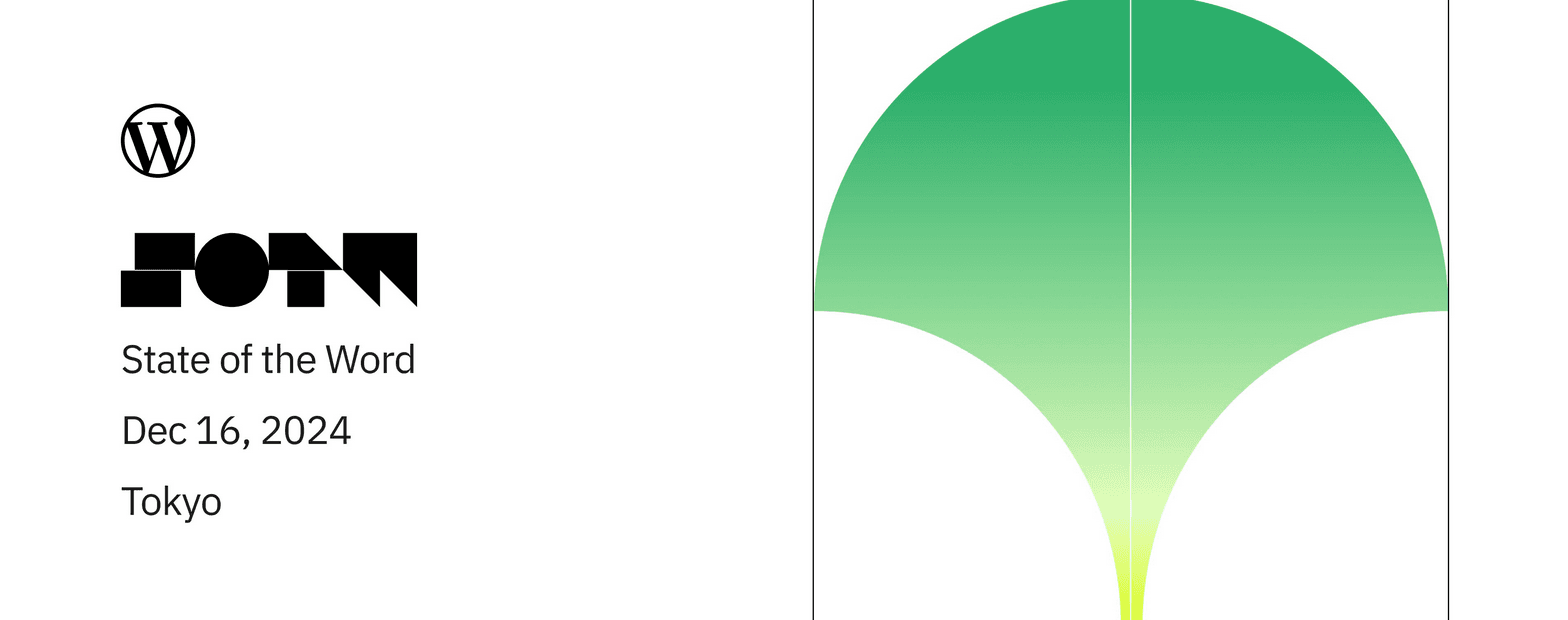For the second year in a row, the State of the World by WordPress was held outside the United States. Following the highly successful 2023 edition in Madrid, the 2024 event recently took place in Tokyo. WordPress co-founder Matt Mullenweg led the keynote presentation, reflecting on a year in which the company proudly showcased its achievements over the past months.
WordPress now powers 43.6% of the internet and, according to W3Techs, holds a 62.3% share of the CMS market. Additionally, WordPress has surpassed 500 million downloads.
Regarding languages, English remains the most-used language (50.8%), while Spanish continues to strengthen its position as the second most-used language in WordPress, representing 6.87%. Following Spanish are German (5.99%) and Japanese (5.82%). Notably, several Asian languages have seen exponential growth in 2024.
On Plugins
One of the major changes between the Madrid and Tokyo conferences was in the plugin ecosystem. The plugin review queue has gone from over 1,000 to zero, significantly reducing review times. This improvement is largely due to the launch of the Plugin Check tool, which has resulted in 41% fewer issues per approved plugin and a 138% increase in weekly plugin approvals.
This efficiency has directly contributed to a 20% year-over-year increase in plugin downloads, demonstrating the effectiveness of the tool and the resolution of a long-standing challenge for WordPress.
Themes and Templates
Over the past 12 months, 1,700 new themes were uploaded, compared to 1,400 in the previous year. Of these new themes, more than 1,000 are block-based themes.
WordPress also shared details about the evolution of Gutenberg, highlighting several notable enhancements. Users can now view templates in full-screen mode and edit entries seamlessly. Additionally, a feature similar to Google Docs now allows users to insert tags within the WordPress editor, facilitating more direct communication with other blog editors.
The WordPress team is also working on a Zoom Out feature. Other updates include improvements to styles, JSON-based theme structures, block links, the query block, ongoing efforts to address the lack of responsive tools in the editor, and a new API for registered blog templates, simplifying the process of registering and managing custom templates.
WordPress Playground
One of the most talked-about features was WordPress Playground, a tool that enables WordPress to run instantly on any device without the need for hosting. This allows users to experiment without installations.
Recent updates to Playground include support for multiple instances within a single window, integration of Blueprints (JSON files to configure WordPress Playground instances), and a Playground block that embeds WordPress instances within WordPress itself.
WordPress and WP Engine
The controversy with WP Engine was also addressed. Matt Mullenweg has strongly opposed WP Engine after unsuccessful attempts to reach an agreement, ultimately losing in the initial round of the dispute.
WordPress Executive Director Mary Hubbard emphasized that the WordPress brand should not be used to mislead users and that the community will not remain idle while others exploit it for personal gain at the expense of collective efforts.
To conclude, Mullenweg stated his desire to work on WordPress for the rest of his life, ensuring his continued presence in the project for years to come.

